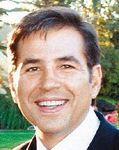Inaccurate coding can be disastrous
Medcal coding is one of the most important aspects of an optometry practice, yet it usually gets the least attention.
Medical coding is one of the most important aspects of an optometry practice-yet it usually gets the least attention, according to John Rumpakis, OD, MBA. And while most optometrists do not underestimate its importance, they do underestimate the consequences of incorrect coding.

"Don't code from perception; code from fact, from what's written down," he said, adding that some optometrists apply cookbook coding, incorrectly using the same codes for patients with similar diagnoses. "A lot of optometrists get their coding knowledge from colleagues and going to seminars, then apply things improperly in many cases."
He said optometrists must challenge presenters. Ask them to cite written references for the policies or rules they're addressing that relate to the optometrist's specific jurisdiction. Don't take anything as gospel, he warned, or worse, implement it, unless it's in writing.
Unfortunately, the federal government is not as forgiving of coding errors as many would like to believe, especially in this struggling economy, which is also in the midst of major health care reforms. Consider this press release issued by the Centers for Medicare & Medicaid Service in January 2011:
"More than $4 billion stolen from federal health-care programs was recovered and returned to the Medicare Health Insurance Trust Fund, the Treasury, and others in fiscal year 2010."
Charges were filed against 284 defendants, 217 guilty pleas were negotiated, 19 jury trials were litigated, and 146 defendants ended up with prison sentences averaging 40 months.
"I wish optometrists would take coding more seriously," said Dr. Rumpakis, who developed ReimbursementPLUS, a Web-based CPT code information and reimbursement software program.
Newsletter
Want more insights like this? Subscribe to Optometry Times and get clinical pearls and practice tips delivered straight to your inbox.